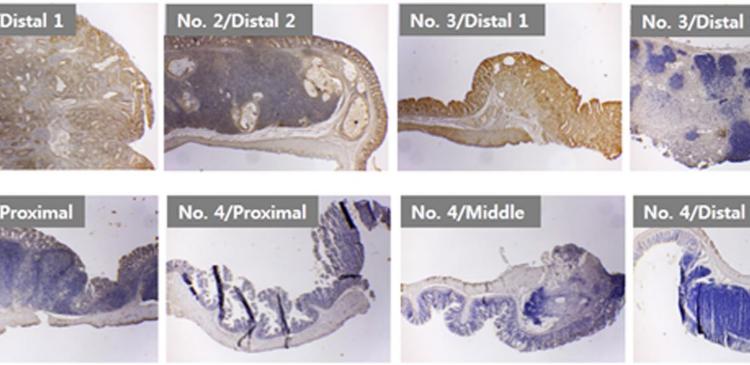Surface images of (a) Conventional acupuncture needle (CN) and, (b) The nanoporous acupuncture needle (PN) with its (c and d) high resolution images. (e) Acupoints of rats used in this study.
DGIST (Daegu Gyeongbuk Institute of Science and Technology) announced that Professor Su-Il In’s research team from the department of Energy Science and Engineering has presented the possibility of cancer treatment, including colorectal cancer, using acupuncture needles that employ nanotechnology for the first time in the world.
The research team of Professor Su-Il In, through joint research with Dr. Eunjoo Kim of Companion Diagnostics & Medical Technology Research Group at DGIST and Professor Bong-Hyo Lee’s research team from the College of Oriental Medicine at Daegu Haany University, has published a study showing that the molecular biologic indicators related to anticancer effects are changed only by the treatment of acupuncture, which is widely used in oriental medicine.
In oriental medicine, treatment using acupuncture needles has been commonly practiced for thousands of years in the fields of treating musculoskeletal disorders, pain relief, and addiction relief. Recently, it has emerged as a promising treatment for brain diseases, gastrointestinal disorders, nausea, and vomiting, and studies are under way to use acupuncture to treat severe diseases.
Not only that, Professor In’s team discovered that acupuncture needles can be used for cancer treatment which is difficult to treat in modern medicine. In this study, the researchers developed nanoporous needles with microscopic holes in the surface of the needles ranging from nanopores (nm = one billionth of a meter) to micrometers (µm = one millionth of a meter) by applying relatively simple electrochemical nanotechnology. By increasing the surface area of the needle by a factor of ten, the nanoporous needles doubled the electrophysiological signal generation function by needle stimulus.
The researchers injected Azoxymethane (AOM), a colorectal cancer inducer, into the rats and then periodically treated with acupuncture. Then, they measured the changes in colorectal cancer, starting from the time of AOM administration, divided into stages of initiation (6-9 weeks) and maturation (45-48 weeks).
As a result of AOM administration in rats, the rats receiving periodic acupuncture treatment with nanoporous needles were found to have a much lower incidence of abnormal vascular clusters as a precursor to colorectal cancer in the initiation stage than those in the control group.
In addition, the research team found that the expression level of β-Catenin, an indicator of maturation of colorectal cancer, was reduced in the maturation-stage of rats exposed to nanoporous needles for prolonged periods of time; thus, it has been shown that acupuncture treatment can affect the maturation rate of colorectal cancer in rats.
Professor Su-Il In of Energy Science and Engineering said, “This research, which combines nanotechnology and oriental medicine technology, is a scientific study that shows the possibility of using acupuncture as a method to treat severe diseases such as cancer. From now on, I will challenge the development of a new medical market by conducting a follow-up convergence study that identifies the potential benefits and efficacy of acupuncture.”
This research outcome was published on October 10, 2017 in the online edition of Scientific Reports, the sister journal of the globally renowned academic journal Nature.
For more information, contact:
Associate Professor Su-Il In
Department of Energy Science and Engineering
Daegu Gyeongbuk Institute of Science and Technology (DGIST)
E-mail: [email protected]




